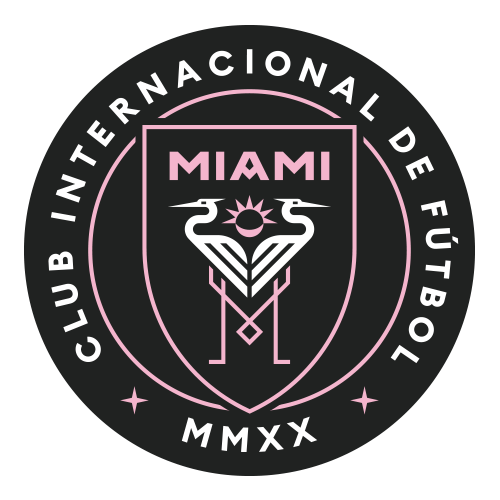Major League Soccer doesn't have a particularly strong record in international competitions. In the league's 30 years of existence, MLS sides have won three continental titles: D.C. United (Concacaf Champions Cup and the short-lived Copa Interamericana) in 1998, the LA Galaxy (Concacaf Champions Cup) in 2000 and the Seattle Sounders (Concacaf Champions League) in 2022.
Is the tide turning? Six of the past eight Concacaf Champions Cup finals have featured an MLS club, though only the 2022 Sounders managed to best opposition from Liga MX in the competition's showpiece event. In this year's finale held earlier this month, the MLS-leading Vancouver Whitecaps were thoroughly dismantled by this past season's third-best team in Mexico, Cruz Azul, by a 5-0 scoreline.
It was a disaster of a result for a league that aspires to be known as the best in North America, and yet, there may be worse to come.
The FIFA Club World Cup gets underway on Saturday, pitting 32 of the biggest teams in the world against one another. Inter Miami, LAFC and the Seattle Sounders will all participate, taking on some of the most decorated sides in the global game: reigning European champions Paris Saint-Germain, Chelsea, Atlético Madrid, and winners of four of the past six South American championships in Flamengo and Palmeiras.
MLS is fresh off its league leader getting destroyed in a continental championship, and now with teams sitting sixth, 12th and 13th in its 30-team table facing the prospect of competing against the most talented sides from Europe and South America, a natural question arises: Is MLS going to struggle at the Club World Cup?

What happened to Vancouver?
MLS teams can afford to make the occasional error during a regular-season match, but up against an elite Liga MX side such as Cruz Azul in the Concacaf Champions Cup final, the margins for those slipups suddenly became much, much smaller.
"When we made mistakes, they punished us," Vancouver's Brian White said after the 5-0 thrashing by Cruz Azul in the championship match. "That's what good teams do in big finals like this."
Clearly overwhelmed by the high press of the Liga MX squad, Vancouver stumbled over defensive mistakes and were down 4-0 by halftime. Arguments could be made whether manager Jesper Sørensen was too cautious, but the harsh reality when analyzing both teams was the contrast in talent available to Cruz Azul, who had the know-how to capitalize on the Whitecaps' errors.
For reference, without any of the roster limitations seen in MLS, Cruz Azul's starting XI market value was approximately $21.8 million higher than that of Vancouver. In fact, Cruz Azul had six players in their XI with a "market value" (for transfers) that was higher than the Whitecaps' lone designated player in the final, Andrés Cubas.
FIFA president Gianni Infantino speaks ahead of the start of the Club World Cup.
Coupled with a suspension for Sebastian Berhalter and an atypically poor evening from Cubas, Sørensen & Co. needed a near-perfect performance from other members of his roster who struggled to compensate.
Things won't get any easier for MLS representation at the Club World Cup. The gulf in depth and roster value of teams becomes even greater when you look at many of the opponents MLS clubs will have to face this summer. While spending more money doesn't necessarily guarantee success, it doesn't take much to find a general correlation between the two.
In Concacaf alone, it's also not a shock to see how that has played out with Liga MX -- which has more freedom with roster building than MLS does -- winning 19 of the past 20 Concacaf titles. When they're on the world stage against teams far more intimidating than Mexican clubs? Let's see if MLS hopefuls can avoid defeats that could be more severe than 5-0. -- Cesar Hernandez

The pressure facing Inter Miami as the face of MLS
Since Lionel Messi joined the Herons on July 15, 2023, Inter Miami have represented MLS in various international competitions, tasking players such as Messi and Luis Suárez to improve the league's image through participation in the likes of the Leagues Cup and the Concacaf Champions Cup.
MLS has generated a ton of publicity around Inter Miami since Messi and a trio of other former Barcelona players joined the team in the summer of 2023, with enhanced media coverage, marketing campaigns and publicity to increase the league's visibility. Now, with the world watching through the Club World Cup, the league depends on the Herons more than ever.
Miami stands as one of three MLS ambassadors at the Club World Cup with arguably higher expectations than their peers to lift the league's reputation around the world. Though the Seattle Sounders and LAFC will also compete, the league's hopes for international recognition depend on a successful run into the later knockout stages from Inter Miami and Messi.
Head coach Javier Mascherano and Inter Miami continue to take a more realistic approach. Despite boasting arguably the world's greatest player on the roster, Mascherano insists on tempering expectations by emphasizing that the level of the American league remains far below the levels of Club World Cup participants.
"We have to be honest. The level [of play] will be higher than what we've faced in Concacaf [Champions Cup] and MLS," Mascherano said. "The Club World Cup has a very high level, and it's a level we clearly don't have. We have to be honest about it, and there's no shame in saying so."
Veteran midfielder Sergio Busquets agreed.
"It's clear that we are not at the level to compete at the Club World Cup, but we will try to compete in our group," Busquets told DAZN. "Go game by game, fight and hopefully advance to the next round though it'll be difficult."
Though Inter Miami enter the competition on the back of two consecutive MLS victories, the month of May saw the Herons struggle. The South Florida side won just three of seven matches, conceding a total of 17 goals to expose defensive weaknesses.
There exists a real possibility that Inter Miami cannot survive the group stage. -- Lizzy Becherano
Al Ahly manager José Riveiro speaks about his excitement for the Club World Cup ahead of facing Inter Miami in the group stage.

How MLS clubs compare to the competition
Considering the lack of connectivity among leagues, obviously any sort of soccer power rankings trying to compare teams from each continent is going to be only somewhat accurate, but it's better than nothing. Opta's Power Rankings endeavor to do exactly this, and they have semi-encouraging things to say about the MLS teams involved in the Club World Cup.
LAFC (126th in the world, per Opta) are the No. 19 team in the field, Miami (146th) are 23rd, and the Sounders (191st) are 24th. Compared to European teams, LAFC sit between RB Salzburg and Sunderland, Inter Miami sit between FC Twente and West Bromwich Albion, and Seattle, having suffered a couple of poor results early in June, is between Blackburn Rovers and Southampton. None will be favored to advance to the knockout rounds, obviously, but all will have opportunities to win matches.
LAFC upset Club América (90th) to qualify for the tournament, and within Group D they're ranked ahead of Esperance Sportive De Tunis (255th) and not that far behind Flamengo (78th). Flamengo barely lead América, and based on the ratings, an LAFC upset of Flamengo -- one that theoretically might allow them to advance to the knockouts -- would be far less surprising than a Flamengo upset of Chelsea.
The other two teams have more of a steep climb. Seattle landed in Group B, the only group with two Opta top-20 teams (No. 3 PSG and No. 14 Atlético Madrid), and while they could perhaps pull one over on Botafogo (118th overall), their odds of advancing would still be almost zero. The draw will likely prevent them from getting too much useful experience from the tournament.
If Seattle landed in the hardest group, Inter Miami might have landed in the easiest: Thanks to a poor season from FC Porto, Group A doesn't feature a single Opta top-50 team as Porto rank 56th, Palmeiras 74th and African power Al Ahly 99th. If there's any home-soil advantage at play, Inter could pull an upset or two.
The Club World Cup is basically two competitions in one. First, lots of similarly ranked clubs from outside of Europe -- including MLS' three entries -- could get useful experience battling each other. Then, starting around the quarterfinals, the European teams will take over. MLS will almost certainly not have an entry in the quarterfinals or beyond, but the "useful experience" part is very much on the table. -- Bill Connelly

MLS' risk and reward at the Club World Cup
The FIFA Club World Cup presents MLS with risks, but also potential rewards.
Since its inception, MLS has contended with the narrative that it is nothing more than a low-level circuit that doubles as a retirement league. Yes, it's currently the league that Messi, Jordi Alba, Busquets and others call home. Before that, it was David Beckham, Thierry Henry and Zlatan Ibrahimovic.
Yet the "retirement league" label ignores the fact that MLS has also become much more of a selling league, with 30 outbound transfers in the last winter transfer window. Players such as Miguel Almirón -- back with Atlanta United after a six-year spell with Newcastle United -- as well as Lazio forward Valentín Castellanos and even current U.S international and Bournemouth midfielder Tyler Adams have used the league as a springboard to greater heights.
Perhaps the best way to drive home that revised narrative is with memorable performances on the field against stiff competition. The league's ventures in the Concacaf Champions Cup have been humbling of late, especially given Vancouver's 5-0 shellacking at the hands of Cruz Azul. The Leagues Cup seems tainted given that most of the games are held on U.S. soil, although that is changing this year.
The Club World Cup is offering more given the increased level of competition. If the three MLS entrants fall flat on their faces, then the retirement league perception will be further entrenched. A respectable performance by any one of the three, though, will see the perception pendulum swing back a bit -- the possible upside is greater than the downside of already existing opinions.
What might success look like for MLS and its teams? Getting out of the group stage should suffice, although that will take some doing.
The bar for gaining respect is admittedly lower for the Sounders. Placed in a group with PSG, Botafogo and Atlético Madrid, Seattle's foray into the Club World Cup has the look of a damage-limitation exercise. If it can nick a point or three off of any of those teams, then the Sounders can exit the tournament with pride intact.
The expectations for LAFC and especially Miami are higher. The Opta rankings have them both placed third in their respective groups, and given the Messi factor, there is hope that the Herons will do MLS proud. Having LAFC progress out of the group stage might do even more to bolster MLS' image, though. The Black and Gold aren't exactly run on a tight budget, and they do boast FIFA World Cup winners Hugo Lloris and Olivier Giroud on their roster, but the linchpin of the team is a less-heralded French-born player in forward Denis Bouanga with lunch-bucket guys such as Mark Delgado and Aaron Long providing the glue.
If a side more representative of MLS and the way teams are built can reach the knockout stages, then fans around the world might cast a more respectful and nuanced glance at MLS, with the league moving up another step in respectability. -- Jeff Carlisle
